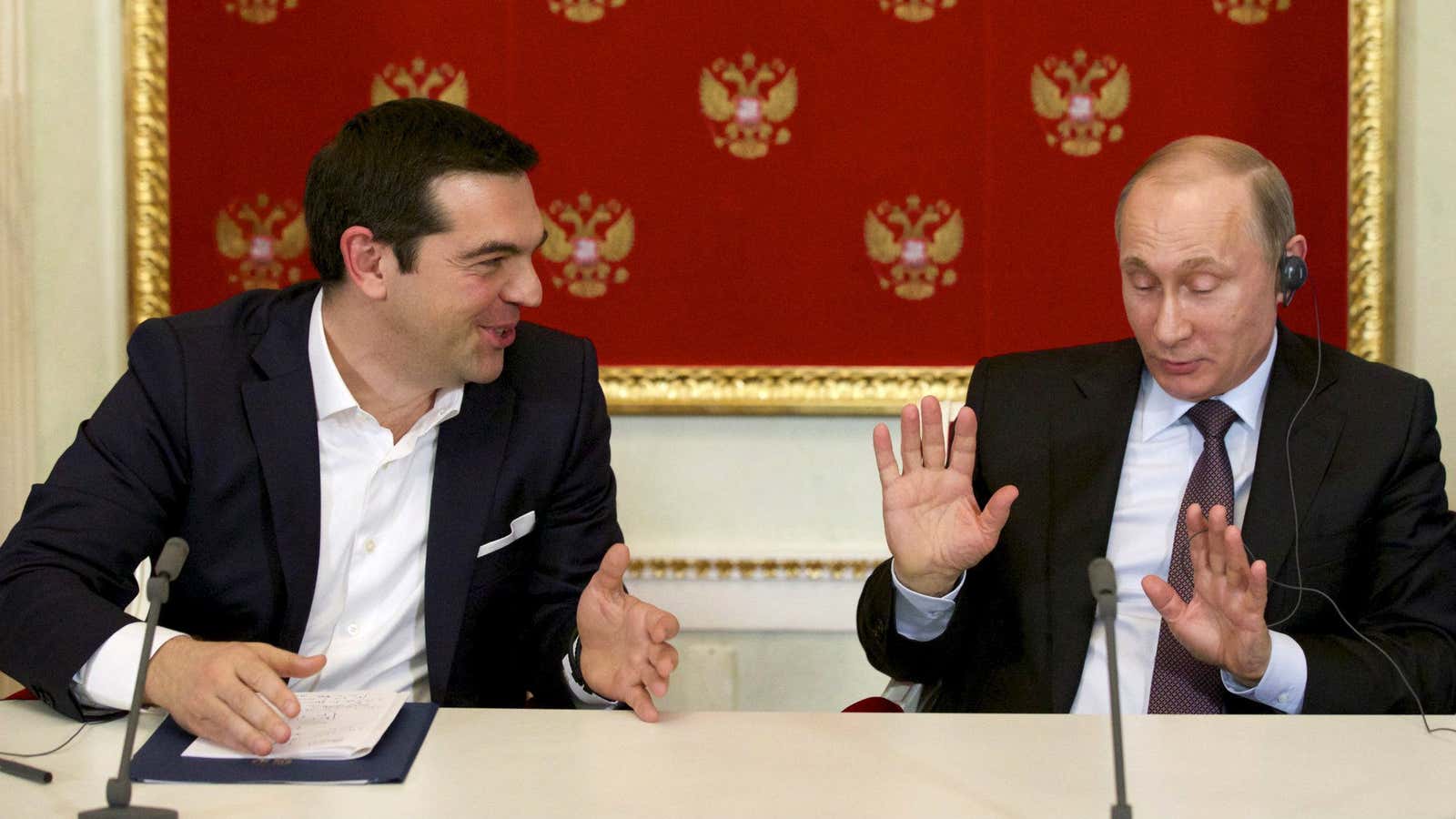Are we finally approaching the end of Greece’s epic bailout negotiations? At the very least, we have something that looks like it might—maybe, possibly—be a hard deadline.
The Greek government owes the IMF some €1.6 billion ($1.8 billion) in loan repayments at the end of this month. It doesn’t have the cash. Without receiving new bailout funds from its reluctant lenders before then, it is almost certain to default. Stiffing the IMF would put Greece in somewhat unsavory company, alongside other deadbeats that include Cuba, Sudan, and Zimbabwe.
But the model Greece is following most closely is that of Zambia. (To wit, the southern African country is a trending topic on Twitter in Greece today.) Until yesterday, Zambia was the only country to ask the IMF to “bundle” a series of loan repayments into a single, month-end lump sum. Similarly, Greece is deferring a €300 million payment due today in favor of grouping its four June payments into one €1.6 billion bill due on June 30. This leeway—if it can be considered as such—is “intended to address the administrative difficulty of making multiple payments in a short period,” the IMF says.
For its part, Zambia’s bundling gambit—which occurred in the 1980s—did not buy it much time before it defaulted on the IMF for real. Amid a wrenching economic downturn, product shortages, soaring inflation, and a host of other ills, the country fell into arrears with the IMF for more than a decade. It has remained in the fund’s care, off and on, ever since.
The other model that Greece appears to be flirting with, and with which it shares many more characteristics than Zambia, is Cyprus. Today, Greek prime minister Alexis Tsipras hastily convened a call with Russian president Vladimir Putin. Although the two reportedly discussed cooperation on a gas pipeline, it brought to mind Cyprus’s 2011 attempt to avoid a full-blown bailout by securing an emergency loan from Moscow. Since his election earlier this year, Tsipras has sought closer relations with Russia; he is due to meet Putin in person later this month.
Even after Cyprus took Russia’s money, it couldn’t stay afloat financially and succumbed to an EU-IMF bailout in 2013. The island’s particularly harsh treatment since then, with bank deposit write-downs and capital controls, is something that Greece would obviously rather not add to its myriad other problems.
As what promises to be stormy meeting of the Greek parliament is now getting underway, Tsipras issued a strongly worded statement rejecting the “extreme conditions” recently proposed by Greece’s lenders in return for more funds.
The patience of Greece’s creditors is clearly wearing thin, and the historical precedents that Athens appears to be following are cause for concern. EU and IMF paymasters would be much happier if instead of Zambia and Cyprus, Greece took after other former bailout basket cases like Ireland (which won a credit ratings upgrade today) or Spain (now one of Europe’s fastest-growing economies). Given the depths of the crises in those countries—which remain on rather shaky ground—this says a lot about Greece’s prospects were it to follow a different, less desirable path.
